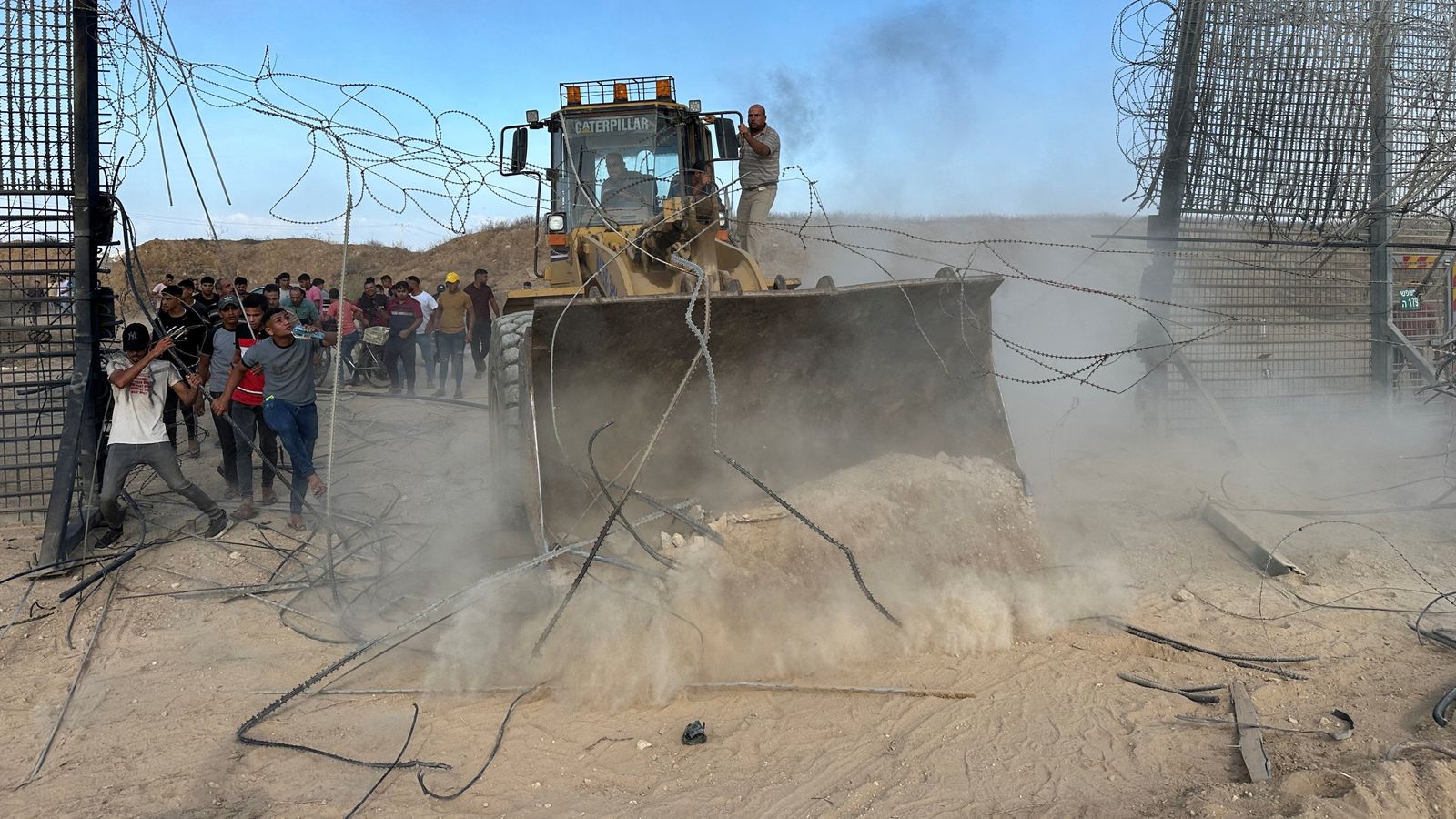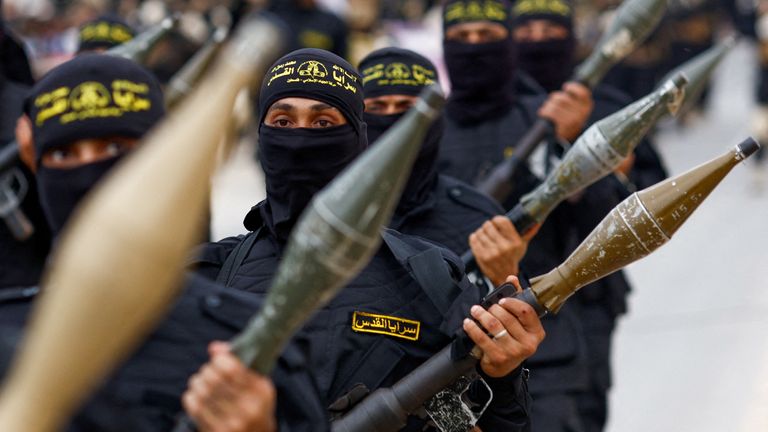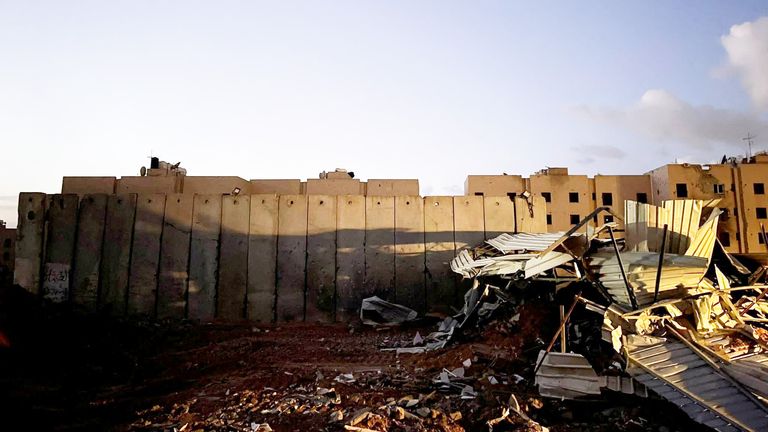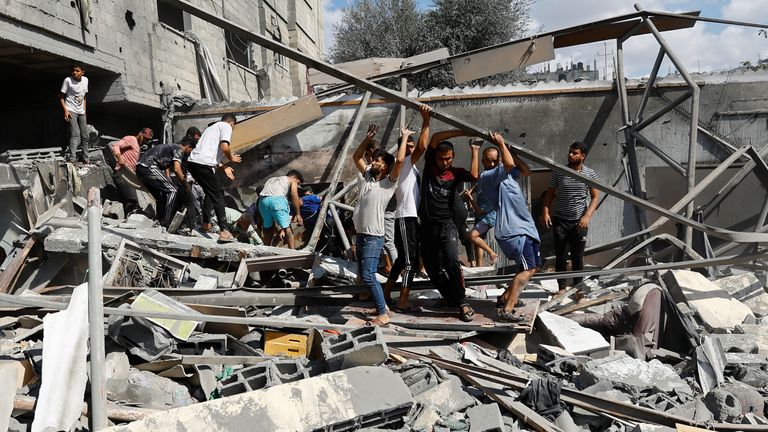Israel-Hamas war: Have hostages gone missing in Gaza?


Qatar has claimed that at least 40 women and children being held hostage in Gaza are not in the hands of Hamas – and are unaccounted for.
Prime Minister Sheikh Mohammed bin Abdulrahman al Thani said they may “never be able to reach them” – despite their communication lines with Hamas – and that locating the missing would be key to extending the current ceasefire.
Truce extension ‘close’; follow Israel-Gaza latest
Hamas leaders have previously blamed other militant groups for hostages going missing – saying they took advantage of damage done to the Israeli border from 7 October to smuggle their own captives into Gaza.
Israel has said it is “evaluating” the list of hostages still due to be freed under the current ceasefire.
So far 117 of 150 Palestinian prisoners promised by the Israelis have been freed – in exchange for 40 of the 50 hostages agreed to by Hamas.
Who might be holding them?
Although the Qataris say more than 40 hostages are missing, one of Hamas’s rival militant groups, Palestinian Islamic Jihad, has claimed it is holding 30 of them.
Hans-Jakob Schindler, senior director at the transatlantic thinktank the Counter Extremism Project, says the situation is “terribly unclear”.
“It’s important to note that Islamic Jihad and Hamas don’t have a co-operative relationship – they’re actually competitors,” he tells Sky News. “So it’s not entirely clear if Hamas can get Islamic Jihad to release any of the hostages it may be holding.
“And it seems it wasn’t just them and Hamas involved in the 7 October attack.
“There’s been a well-developed smuggling economy in Gaza for decades – long before Hamas took control – organised by networks of crime families.
“So it’s possible hostages are neither under the control of Hamas nor Islamic Jihad – but these crime organisations.”
Independent criminals would have looked to take their own hostages in the chaos of 7 October for their own gain, he adds.
Could Hamas be lying?
Qatar’s links to Hamas, hosting many of its leaders in Doha, mean that Sheikh Mohammed’s claims about missing hostages are likely to have come from the group.
Mr Schindler says he “wouldn’t put it past Hamas to lie to the Qataris” as a way of indirectly misleading Israel.
But if they are, this is a strategy they need to consider “very, very carefully”, Professor Michael Clarke, security and defence analyst, tells Sky News.
“It’s in Hamas’s interests to keep these negotiations going, for two reasons.
“First, they want Palestinians freed from Israeli prisons, but second, so they can stall Israel’s second offensive.
“So, on the one hand, they want to play mind games, but they also don’t want to ruin the arrangement.”

Read more:
The 40 Israeli hostages freed so far
Why is Qatar involved in hostage negotiations?
Four-day truce enters final 24 hours
Continuing the hostage-prisoner exchange is also important for Hamas’s legitimacy with the people of Gaza, Mr Schindler adds.
“This is a two-part negotiation. One with Israel and then one internally – to show the Palestinian community this was all worth it – Gaza destroyed, Palestinians used as human shields.
“They want to use this hostage situation to their maximum benefit – because before 7 October, 70% of Gazans said they didn’t like Hamas and I don’t think it’s going to get much better.”

Could they have died?
From late-October, Hamas has claimed that between 50 and 60 hostages have been killed in airstrikes.
Abu Ubaida, spokesperson for the Qassam Brigades, the group’s military wing, said the bodies of 23 missing Israeli hostages had been found in rubble.
Professor Clarke claims, however, that with hostages being likely held in tunnels underneath Gaza, they are safer than most in the territory and are unlikely to have been killed.
He also notes that Hamas did not identify any hostages supposedly confirmed dead.
“It would have been to their advantage to name them because it would increase pressure on Benjamin Netanyahu to pause airstrikes on Gaza, as the families could say ‘our relatives died from Israeli bombs – please stop them’.”